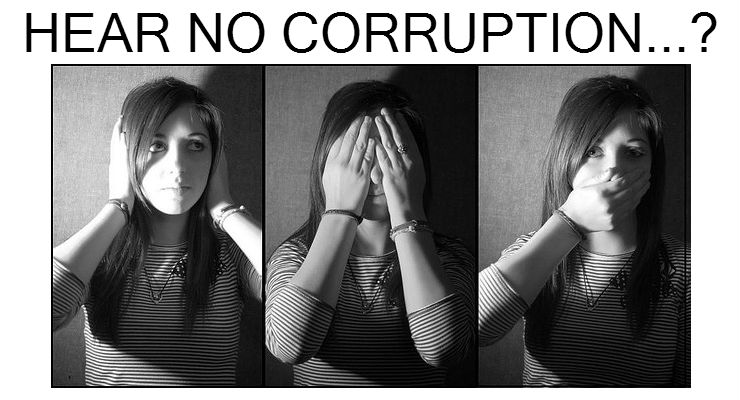
Report Sheds Light on Campaign Spending and State by State Reactions to Influx of Money Into Politics After Citizens United Ruling
Democracy and elections
The Supreme Court’s Citizens United decision has become infamous throughout the country as the court case that has unleashed unlimited amounts of money into legal corruption of our politicians. As the average American looses faith in the government’s ability to function, Citizens United has created an unprecedented backlash and revival of the democratic reform movement across the country. More and more blood and guts Americans are fighting to regain popular control over the government including groups from across the political spectrum from Voter ID reform activists on the left to transparency activists on the right.
Now it seems, the system of federalism and the power of the States is turning out to be a platform for reform in clear reaction to the overreach of Citizens United. Thanks to Rick Hasen’s Election Reform Blog, Democracy Chronicles has the latest news on the efforts of the States to bring transparency to the flow of money into the political system.
Light on Campaign Spending
A new report from the Corporate Reform Coalition, a sort of advocacy group for various other organizations including the AFL-CIO, Greenpeace and Common Cause, shows that the reaction to Citizens United from the 50 State governments has been extremely different depending on where you look. New York and North Dakota have the worst transparency laws in the country according to the report. Thirteen states are given perfect scores including California, Wisconsin and strangely South Dakota. It seems the Dakotas are not that similar after all, with North Dakota given the lowest score of 0 while South Dakota got 100, the best score possible.

Take a look at the pdf of the report, here, or look at a summary of the report by Public Citizen, another election reform charity that can be found here. The article by Public Citizen describes the report:
The report, “Sunlight State by State After Citizens United,” details the steps, legislative and otherwise, that each state took to respond to the Citizens United decision and grades them on transparency in spending. It also points to a need for more sweeping federal reform. Thirteen states received a perfect score of 100 when it came to their disclosure requirements of political spending. One, North Dakota, received a score of zero.
All but one, Montana, either repealed independent expenditure prohibition laws or issued interpretations that declared the laws unenforceable. Montana defended its law, which was upheld by the state Supreme Court, a decision that the U.S. Supreme Court may review. In all, 22 states reviewed their laws regulating political spending and decided to respond to the Citizens United decision in some way.
They also describe some of the interesting laws concerning transparency that some States have adopted:
The most creative provisions adopted by the states include those that require the names of the top contributors to be listed in ads (Alaska, California and North Carolina); require that corporate board members approve of independent political spending (Iowa); require that shareholders be informed of corporate political spending directly (Maryland); and mandate that the chief executive officer appear in the ad (Connecticut).
The report itself lists the criteria used as follows:
- Disclosure of independent spending [40% of the grade];
- Disclosure of late independent spending (expenditures made shortly before the election that need to be disclosed immediately) [10% of the grade];
- Electioneering communications (spending naming a candidate but not specifically urging the election or defeat of the candidate; the so-called “magic words” test) [20% of the grade];
- Information appearing on the ads themselves, such as disclaimers that the candidates had not paid for the ads, and the name of the ad’s sponsor and other information identifying who paid for the ad [30% of the grade].
As an example of the reports findings, here is the report on Democracy Chronicles’ home state and apparently a terrible example of government transparency, New York:
New York’s law has remained the same since the Citizens United decision although the Public Integrity Reform Act of 2011 requires the State Board of Elections to issue regulations specifying how independent expenditures and other expenditures that expressly identify a political candidate. The Board has proposed regulations, but they have not been adopted as of May, 2012. New York has a general section that can be interpreted to mean that the independent expenditures must be reported, but this section has yet not been enforced. NY ELEC Section 14-102 (1). It has no late independent expenditure provisions.
It does not require electioneering communications to be reported although the Public Integrity Reform Act of 2011 could be interpreted by the Board of Elections to mandate such disclosures. Its proposed regulations, however, do not require such reports. New York has no disclosure on ads, but it does require copies of ads to be submitted after the election to the Board of Elections, which must retain them for a year. NY ELEC Section 14-106.
The report describes the Corporate Reform Coalition, that apparently has no Wikipedia page, as follows:
The Corporate Reform Coalition is composed of more than 75 organizations and individuals from good governance groups, environmental groups and organized labor, and includes officials and socially responsible investors. The Coalition seeks to promote corporate governance solutions to combat undisclosed money in elections.

Leave a Reply